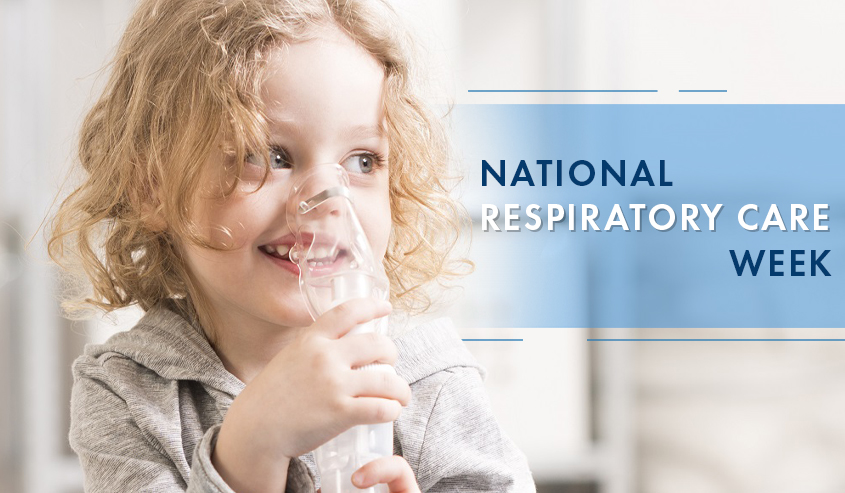
Held from October 25th to 31st annually, the National Respiratory Care Week recognizes the service of respiratory care professionals and creates awareness about lung diseases and respiratory issues. With a host of ailments affecting the respiratory system such as asthma, lung cancer, pneumonia, COPD, occupational lung disorders among others. Other lesser known include sarcoidosis, rhinitis, idiopathic pulmonary fibrosis and chronic sinusitis. Currently, COVID-19 pandemic has put respiratory distress and related lung issues in the spotlight.
Creating awareness about the respiratory ailments and ways to prevent it is an important step to safeguard the health of the people. As per National Center for Health Statistics, over 25 million people are afflicted with asthma in the U.S while over 14.8 million suffer from COPD. This is the fourth leading cause of fatalities in the U.S. and the major cause of this disease is smoking, while genetic factors do play a role in the development of this disease.
Respiratory Care Is Vital
Well, you need respiratory care if you have trouble breathing and want to survive. For example, if you’re suffering from extreme asthma, you will probably be given an inhaler to help you breathe better. If you are suffering from acute, stage IV congestive heart failure, you will be hooked up to a breathing machine. This machine will do the breathing for you – this is a function that your lungs do naturally. However, heart failure patients have damaged lungs that are not capable of doing this on their own.
How Can Doctors Tell If You Have Trouble Breathing?
Well, shortness of breath is one key indicator. Many people who have caught COVID-19 have complained of shortness of breath. However, doctors can use many tests to tell if your lungs, heart, and organs are getting enough oxygen. They can have you do a spirometry test. This is a test that has you trying to inhale and exhale air the same way that normally people do. If you have trouble doing it, doctors know that you probably have a respiratory disorder.
Another important test is the methacholine challenge. Doctors use this test to determine if your breathing problems are caused by asthma. If the causes of your breathing problems are hard to detect, doctors may order an x-ray test or a CT scan of your lungs and heart. The x-ray test examines the internal structure of your breathing problems to see if they are the cause. A CT scan takes many x-rays of your breathing organs. It then has a computer analyze them for any abnormalities. Digital imaging has come a long way and is one of the most recommended tests to diagnose and subsequently treat respiratory ailments.
How Can You Prevent Respiratory Problems?
You can keep your breathing function healthy by not smoking. The chemicals in cigarette smoke can damage your heart and lungs. This can cause severe and sometimes permanent breathing problems. You can also install air filters in your home that will filter out pollen and pollutants. These can cause breathing problems. If you are overweight, get your weight within your Body Mass Index (BMI). This will put less pressure on your lungs and heart. It will also help you breathe better. It’s important to be able to breathe properly if you want to live a long healthy life. This means being able to inhale a certain amount of oxygen in a certain time period.
